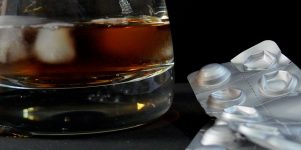Illegal Drug Use Amongst Lawyers

By Blake O’Connor and Ugur Nedim
Lawyers are meant to fearlessly advance the interests of their clients, whilst respecting the law.
However, a number of cases, studies and reports suggest the legal profession is plagued by illicit drug use.
Last year, the NSW Office of the Director of Public Prosecutions (DPP) launched an investigation into its own lawyers after concerns were raised about illicit drug in its senior ranks. Ironically, these are the same lawyers who regularly prosecute drug cases in NSW.
One lawyer in the team, Lisa Munro, was charged with drug possession after being found with 0.65 grams of cocaine at Potts Point. She pleaded guilty, with the sentencing magistrate emphasising that a “loud and clear” message must be sent about the unacceptability of drug use.
And earlier this year, a Federal Circuit Court Judge’s Associate was sentenced to a 12-month good behaviour bond after also being found in the possession of cocaine.
In another recent case, Australian Government Solicitor Nicholas Gouliadites pleaded guilty to supplying ‘ice’ to an undercover police officer on three occasions at his Sydney office. Mr Gouliadites was a habitual user of the drug, with colleagues reporting that he had overdosed at least once and was “literally falling apart at work”.
In yet another recent case, Ugo Parente, a former criminal defence lawyer in Liverpool, was charged with a number of serious drug-related offences, including:
- Supplying more than a commercial quantity of a prohibited drug;
- Supplying more than an indictable quantity of a prohibited drug;
- Supplying a prohibited drug (two counts);
- Possessing a prohibited drug; and
- Goods in custody.
On searching Mr Parente’s home and car, police allegedly found more than 30 Sushi containers filled with the drug GHB.
Position of Trust
Lawyers are entrusted to act in the best interests of their clients, and drug use can affect both general performance and advocacy inside the courtroom – potentially leading to disastrous consequences for clients and their families. As the head of the Psychiatry at St Vincent’s Clinic, Dr Fisher, points out:
“Just as (Doctors) can kill a patient, lawyers can cost their clients huge amounts of money and destroy their lives”.
He believes more should be done to support and rehabilitate lawyers with drug and alcohol problems.
Penalties
The fact that lawyers are expected to obey the law, and the potentially catastrophic consequences of drug-affected lawyers running cases inside the courtroom, has led to calls for members of the legal profession to receive tougher sentences for using illegal drugs.
Indeed, for certain types of cases such as fraud, any breach of trust is seen as an ‘aggravating factor’ for the purpose of sentencing. There is no general rule, however, that lawyers must receive harsher sentences for drug offences – although there is scope for prosecution submissions that the conduct is a reflection of general character, and could have affected clients.
‘Extra Curial’ Punishment
It should be noted that lawyers can face additional penalties for committing crimes – including having their practising certificates suspended or cancelled. Such penalties are significant given that lawyers study intensely for many years, often accumulating significant debts, to become members of the legal profession in the first place.
Lawyers are expected to act reputably in their professional and personal lives. Any disreputable, dishonest or illegal conduct can lead to proceedings by the relevant Law Society for “unsatisfactory professional conduct” or the more serious offence of “professional misconduct”, which can see them permanently “struck off”, in addition to penalties they may receive under the general law.






